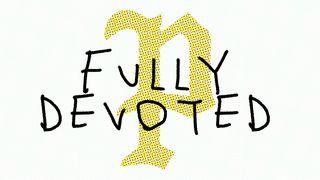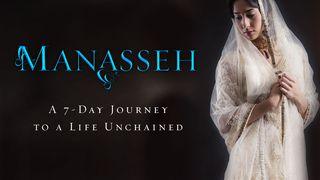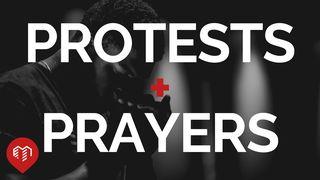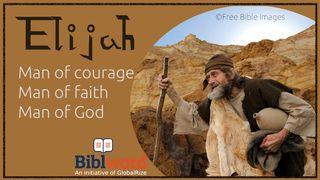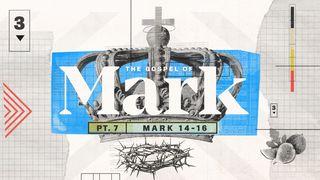Cities of Refuge: Returning to GraceSample

Day Six: The Older Son
Scriptures: Luke 15:25-32 , Luke 18:9-14, Luke 11:39-41, Psalm 51
The most overlooked portion of the parable of the Prodigal Son tends to be the older son. Or, in many cases his character gets attributed only to the Pharisees since he is chastised for his legalistic and condescending attitude toward his repentant younger brother. But what if we flip the usual narrative and check our own hearts against these verses instead?
The Pharisees have historically been vilified, their strict observances of the law categorized as sinful and hypocritical; and of course Yeshua himself railed against their practice of placing the Oral Torah about Moses’s written law and then not even obeying their own highly restrictive edicts. But we cannot forget that they were also men who upheld the Word of God and diligently studied it, who sought to live out their faith with purity, and devoted themselves to prayer and fellowship. And although there were a number of Pharisees who tried to entrap Yeshua time and again, there were also many who did in fact come to follow Yeshua, such as Nicodemus and Joseph of Aramathea.
We must remember that even though he was frustrated with them at times, Yeshua loved the Pharisees, he desired for them to open their eyes and see that he came to save all sinners—including them.
If we compare many of the attitudes of the Pharisees, as portrayed by the older brother, its almost certain we will see that we (and the modern church in general) are guilty of them as well.
Instead of welcoming his broken, desperate younger brother, the older brother looks down his nose in pride. Instead of being glad that his brother is forgiven and welcomed back into the family, he calls him “this son of yours” and deems himself much more worthy of his father’s regard. Instead of valuing the inheritance he’s been given as a son, he acts as though he’s somehow earned that gift and then begrudges his brother’s blessings.
Are there times when we lack compassion for those struggling in destructive cycles of sin? Are there times when we are so bound up in our own traditions that we forget that unity among the Body of Christ is a command? Do we sometimes trample on the free gift of grace by patting ourselves on the back for how “righteous” we are, instead of remembering that the only good fruit is the fruit of the Holy Spirit?
It is all too easy to slip into a critical spirit. We are human, therefore we skew towards pride more often than not. And as much as we don’t like to admit it, we all have looked down upon others and their weaknesses at one time or another. If we are honest with ourselves, we know that at times we look at the world around us and think “I’m so glad I am not like that person….” (Luke 18:9-14) whether we vocalize those things are not. And just like the older son we may silently begrudge others’ blessings or find jealousy creeping in when someone that we may deem “less mature” in Christ is being honored or celebrated.
Examining our motives and attitudes is really uncomfortable isn’t it? It causes us to not just take a brief look in the mirror but to look into our own eyes and search deep beneath the masks we wear, even for ourselves. It takes courage to poke around in the darkest parts of our hearts and admit that we, like the Pharisees tend to polish up the outside of the cup while allowing filth to fester inside us (Luke 11:39-41).
But thankfully, even through we’ve nurtured pride, unforgiveness, and self-righteousness deep within our hearts, we have a Messiah who died for those “older brother” sins just as much as he died for the “younger brother” sins of rebellion and recklessness.
We can come before our Great High Priest in humility and ask that he would create a clean heart in us (Psalm 51). We can ask to be renewed and restored to joy. We can ask for him to stir profound compassion for the lost and the wayward and the hurting within the Body. We can plead for the ability to see our brothers and sisters in Christ through His eyes. We can pray for a spirit of unity to blossom among those who are saved by the Blood of the Lamb, even if our doctrines or traditions don’t perfectly align.
It is interesting that even though Yeshua summed up the first two parables he told, that of the lost sheep and the lost coin, he does not do so with the story of the lost son. Instead he leaves the Pharisees (and the rest of the crowd) with questions: Was the older son ever convicted of his pride and unforgiveness? Did he set aside his frustrations and join the celebration? Or did he stay blind to his own faults and walk away? In this way, Yeshua gives them all room to ponder, room to be convicted by his words as they reflect on their own attitudes in comparison to that of the older brother.
I can only imagine what it might have been like that day, what sort of strained silence followed such a pointed indictment of the Pharisees arrogant behavior toward the “sinners” Yeshua was associating with. But hopefully there were some among the gathering whose eyes were opened, who examined their own hearts and saw the gaping need within them. Let us not miss the blessings of doing the same, stripping off the layers of self-righteousness and pride and the polished exteriors that mask the filth within, so that the Holy Spirit can do the work of cleansing us from the inside out.
Questions for Consideration
Take some time to really examine your motives and behaviors with others around you, while at the same time asking the Lord to reveal any “older brother” attitudes you might be harboring. What things did he bring to mind? Were you surprised by any convictions?
Are there any fellow believers who you’ve been struggling to forgive? Ask the Lord for the courage to lay the burden of unforgiveness down so that both you and that broken relationship can begin to heal.
Are there people in your life who claim Christ but whose lives haven’t born much fruit? What steps can you take to come alongside them in a spirit of love and compassion instead of haughtiness? How can you be a catalyst for Christ-honoring unity within your own circle of influence?
About this Plan

Best-selling author Connilyn Cossette invities you to join with her on this seven-day study inspired by her latest novel, Until the Mountains Fall, the third installment of the Cities of Refuge Series. These devotionals will focus on the parable of the Prodigal Son and how this redemptive narrative challenges us to examine our our hearts and minds and helps us more fully comprehend the boundless love of our Father.
More
We would like to thank Bethany House Publishers for providing this plan. For more information, please visit: https://www.connilyncossette.com/


